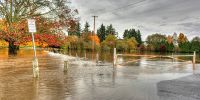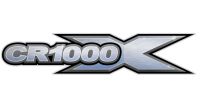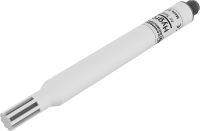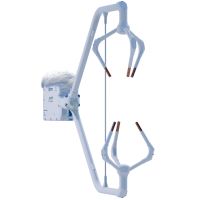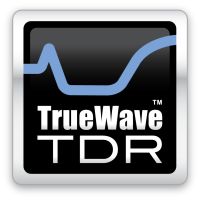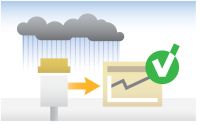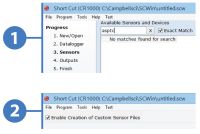The Campbell Scientific Blog Your source for useful how-to information and helpful expert advice
Displaying 41 - 60 of 152 articles
Why Data-Acquisition Systems Are Key Elements to Solar Projects
Author: Libbie Anderson | Last Updated: 09/21/2020 | Comments: 2
Solar photovoltaic (PV) monitoring projects often use a variety of sensors to gain information about the site performance and its available resources. To obtain this information, solar-monitoring sensors need to be connected to a database that can collect, evaluate, visualize, and interpret data from all... read moreMaking Real-Time Crest Measurements
Author: Mike Nelson | Last Updated: 09/08/2020 | Comments: 0
There are times during major weather events when we may hear the news reporter indicate the local river is expected to crest in the next 12 hours at an estimated stage level. What is a crest and a stage level, and how do they affect me? Basically,... read moreWeather Solutions for IEC 61724-1 Class A Solar Monitoring Systems
Author: Libbie Anderson | Last Updated: 06/29/2020 | Comments: 0
You may have heard of the IEC 61724-1 standard to promote international uniformity in PV (photovoltaic) system performance monitoring. But why was it created, and what does it mean for you? In this interview with PES (Power & Energy Solutions), Matt Perry, Technical Product Manager for... read moreHow Can You Benefit from a Solar Monitoring System?
Author: Libbie Anderson | Last Updated: 06/10/2020 | Comments: 0
At Campbell Scientific, we understand the value of your solar energy farms and the necessity to keep these energy-producing facilities in top condition. To help you monitor their efficiency, we’ve designed innovative solar monitoring equipment that has been tested through deployments all over the world.... read moreWhy Compromise if You Don’t Have to?
Author: Ryan Guerrero | Last Updated: 05/29/2020 | Comments: 0
It’s 2020, and yet those of us who need water level monitoring and flood warning systems continue to face the quandary of choosing between easy-to-use stations OR flexible stations that can handle all our measurement and control needs. In the years of self-driving cars and telecommuting jobs,... read moreThe Importance of Distributed Meteorological Data for Solar Farms
Author: Libbie Anderson | Last Updated: 05/01/2020 | Comments: 0
On every utility-scale solar farm, it’s crucial to answer the fundamental question: how much solar radiation reaches the surface of the photovoltaic (PV) modules? These farms span hundreds of acres and in order to address this question, owners use meteorological monitoring stations and data loggers... read moreA Quick Comparison of the CR1000X, CR1000, and CR6 Dataloggers
Author: Timothy Jeppsen | Last Updated: 03/19/2020 | Comments: 4
We recently released the CR1000X Measurement and Control Datalogger, and you may be wondering how it compares with our widely used CR1000 datalogger and our innovative CR6 datalogger. If you’re in the market for a new data logger, how do you know which one is... read moreRelative Humidity: To Average, or Not to Average?
Author: Dirk Baker | Last Updated: 01/30/2020 | Comments: 2
Have you ever been told not to average relative humidity (RH)? Have you ever created a data logger program with Short Cut and noticed that it does not allow you to average RH when you generate your data table? Do you know why? In this blog... read moreEvolution Not Revolution: Updating an Established Product Range
Author: Andrew Sandford | Last Updated: 01/06/2020 | Comments: 0
Imagine that you already have a winning sensor that has sold more than 15,000 units. As time passes, you realize that technology has evolved, but your sensor hasn’t. If you are objective in your product evaluation, you may determine that there is justification for the... read moreIt’s Time to Embrace the Hybrid
Author: Kevin Rhodes | Last Updated: 12/02/2019 | Comments: 0
Sometimes, it’s hard to let go. But if we don’t let go, we don’t have empty hands ready to embrace something new—even a data logger. The CR1000 Measurement and Control Datalogger (introduced in 2004) has been incredibly successful with installations on every continent of our planet.... read moreWhy Should You Use a Heated Sonic Anemometer?
Author: Robin Deissinger | Last Updated: 11/19/2019 | Comments: 0
Are you ready to get heated? In this interview, Hayden Mahan, Product Manager of the Gas Flux and Turbulence Group, shares his excitement about our heated sonic anemometer (the new CSAT3BH) and why heat matters. Hayden was interviewed by Robin Deissinger, the blog editor. Interview... read moreHow to Fill the Road-Weather Information Gaps
Author: John Markham | Last Updated: 08/13/2019 | Comments: 0
Although there have been vast improvements in our ability to gather and use road-weather data, there are still, unfortunately, significant information gaps we must fill. In this blog article, we’ll look at the issues that hinder our current data acquisition and a solution for obtaining... read moreSoil CO2 Flux Measurements Made Easy
Author: Robin Deissinger | Last Updated: 06/24/2019 | Comments: 0
Patented technology enables a new sensor to measure soil CO2 flux directly, providing you with new flexibility to make your measurements. In this interview, Hayden Mahan, Gas Flux and Turbulence Product Manager, introduces us to the eosFD and explains how this sensor works. Hayden was... read moreTaking In-Situ Soil Measurements to New Performance Depths
Author: Dirk Baker | Last Updated: 04/17/2019 | Comments: 0
Advances in technology and mechanical design offer vast improvements for those of you who need soil measurements at multiple depths—especially environmental researchers and anyone who works with environmental monitoring networks. In this article, we’ll take a closer look at the measurement challenges you may face... read moreHow to Easily Test Your Rain Gauge Calibration—and Avoid Errors
Author: Mike Nelson | Last Updated: 02/28/2019 | Comments: 4
Testing the calibration of your rain gauge is a simple process. But as you know, it’s also easy to introduce problems, such as incorporating simulated data as real data. In this article, we’ll review a useful feature that automates the testing process and can help... read moreHow to Create Custom Sensors in Short Cut
Author: Jason Ritter | Last Updated: 02/27/2019 | Comments: 4
Have you ever wanted Short Cut to support more sensors? Although Short Cut supports many sensors, you may have found that the sensor you want to measure is not on the list. What do you do then? How do you add that sensor to your... read moreHow to Monitor Your Campbell Cellular Modem Data Usage: Part 1
Author: Nathanael Wright | Last Updated: 01/16/2019 | Comments: 2
Did you know you can monitor your data usage using CRBasic program code on our new data loggers with integrated cellular modems and our external Campbell Scientific brand of cellular modules? In this two-part series, I’ll first show you how to do this in the... read moreHow to Use Keypad Commands with Edlog Data Loggers
Author: Bruce Smith | Last Updated: 01/09/2019 | Comments: 0
Whether your Edlog-based data logger has a built-in keypad, an external keypad, or no keypad at all, keypad commands are an important field tool. But, if you don’t have a keypad, how do you use keypad commands? In this article, we’ll discuss this topic and... read moreSuccessfully Connect Your Retired Data Logger to a PC
Author: Jacob Davis | Last Updated: 12/19/2018 | Comments: 0
Have you experienced a scenario similar to this one? You have an automated weather station with a retired Edlog data logger (such as the CR10X), which has been running great for 20 years. Recently, the data logger stopped transmitting data to your server, so you... read moreNew Product Support: Bifacial Plane of Array (BPOA), solar energy’s newest irradiance expression
Author: Matt Perry | Last Updated: 12/12/2018 | Comments: 1
Plane of array irradiance (POA) is a well-known term used to quantify the incident irradiance on a given solar array. It is the parameter most directly related to the power output of a PV module and is used extensively in PV performance analysis and modeling... read more
